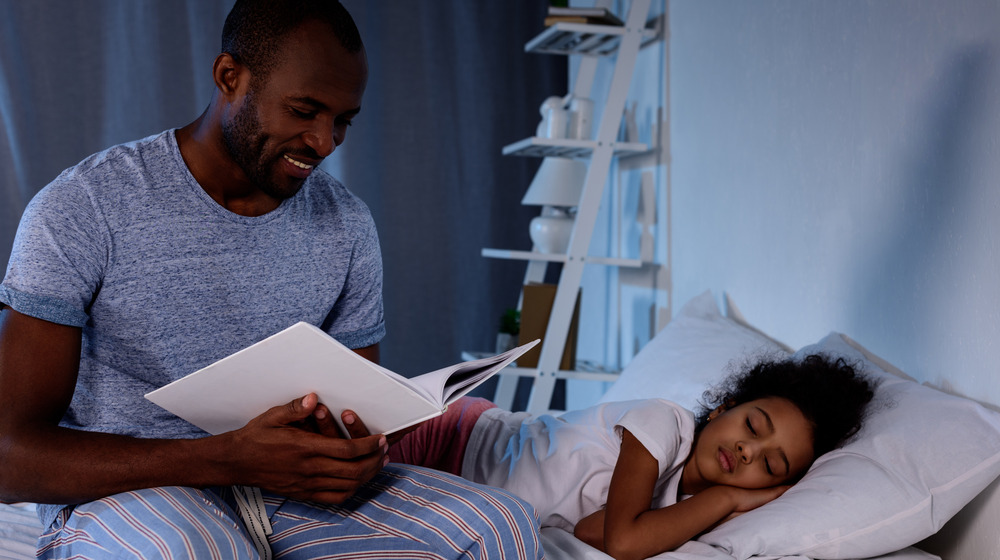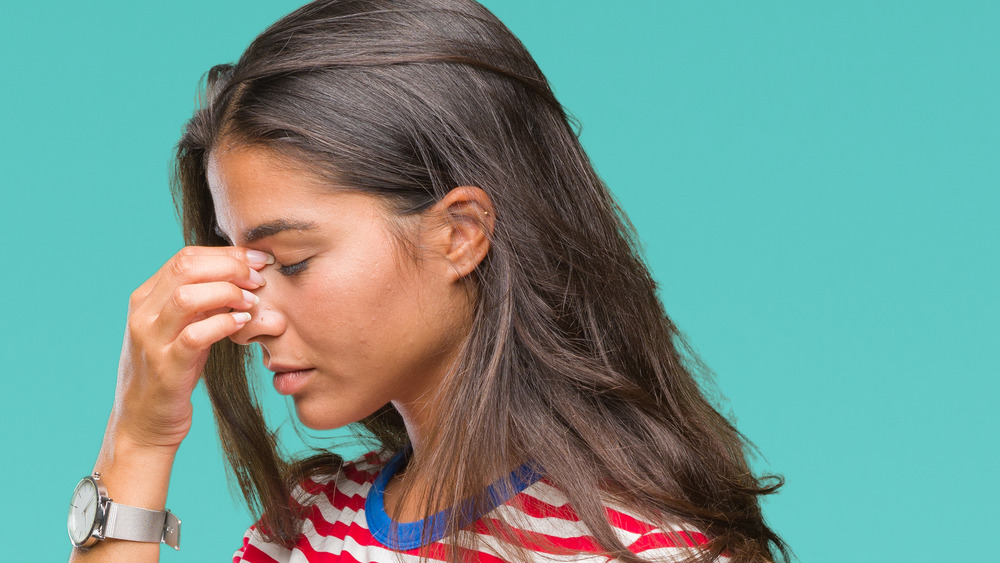Does Reading In The Dark Cause Long Term Eye Damage?
When it comes to reading, it's difficult to find that sweet spot between lighting that's too bright and lighting that's too low. On the one hand, fluorescent lighting can put added stress on our sensitive eyes that can result in dryness or even blurry vision (via Vision Pro Optical). On the other hand, are there also risks associated with reading in the dark? At one point or another, we've all heard that cautionary tale from a parent or teacher, but is there substantial science to back up this claim?
As it turns out, most experts agree that the most common side effect you may experience from reading in low light is likely to just be a temporary headache (via The New York Times). This is due to the fact that our eyes are capable of performing in different degrees of light (via BBC). For low light situations, our pupils compensate by dilating, as this allows for more light to be absorbed by the rod and cone cells in our retinas. So while our eyes do naturally adjust, the added work put on them to do so can cause strain that may lead to undesirable headaches.
Most experts agree that temporary headaches are likely to be the only risk of reading in the dark
While vision loss is not uncommon to experience later in life, some researchers believe that any form of eye strain can still be detrimental in some capacity. Myopia, a focusing disorder, causes blurred vision depending on the proximity of an object to the eye. Objects in close range may show up clearly, but those further away may be harder to see. Some studies have shown that in the United States, cases of myopia are correlated with those who have high degrees of education or strenuous jobs that involve heavy amounts of reading. It's for this reason that some experts believe too much focal strain can serve as the onset for vision decline to take place sooner rather than later.
To some degree, the jury is still out. Overall, medical professionals agree that reading in the dark is relatively safe and should not be cause for major concern. As a general rule, however, perhaps we should consider being as kind to our eyes as possible, and try to provide them with adequate light to help support all of the great work they do for us on a daily basis. Should you have any concerns about your eye health, please consult with your physician or optometrist for further information or treatment.


